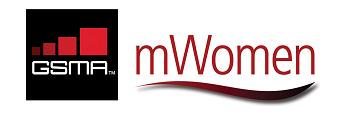The GSMA – an inernational organisation that represents the mobile industry – launched the GSMA mWomen programme yesterday. It's designed to bring the socio-economic benefits of mobile technology to women in developing markets. The scheme is a partnership between the global mobile industry and the international development community that aims to bring the 'power of mobile' to more than 150 million women within three years.
There are three main elements to the GSMA mWomen Programme:
Technical Assistance – activities focused on catalyzing the mobile industry to close the gender gap,
Value-Added Services – life changing services in health, education, entrepreneurship and financial opportunities for women created in partnership with the international development community, and
Challenge Fund – matching grants for the mobile industry for initiatives designed to reduce the gender gap and provide life changing services to women.
 Rob Conway, CEO of the GSMA, launched the scheme with US Secretary of State Hillary Rodham Clinton and Cherie Blair, who founded the Cherie Blair Foundation for Women. The Cherie Blair Foundation's recent "Women and Mobile: A Global Opportunity" report showed that 300 million women in developing countries are missing out on what mobile technology can offer. It notes that a woman is 21% less likely to own a mobile phone than a man, yet 41% of women reported having increased income and professional opportunities once they owned a mobile phone – and 93% of women reported feeling safer because of their mobile phone.
Rob Conway, CEO of the GSMA, launched the scheme with US Secretary of State Hillary Rodham Clinton and Cherie Blair, who founded the Cherie Blair Foundation for Women. The Cherie Blair Foundation's recent "Women and Mobile: A Global Opportunity" report showed that 300 million women in developing countries are missing out on what mobile technology can offer. It notes that a woman is 21% less likely to own a mobile phone than a man, yet 41% of women reported having increased income and professional opportunities once they owned a mobile phone – and 93% of women reported feeling safer because of their mobile phone.
Mrs Blair said "Mobile phones are an indispensible personal, economic and development tool, but 300 million women are missing out on the mobile revolution. Helping more women access mobile technology means they can feel safer, improve their literacy, access vital health information and generate a better income. I am thrilled to be an mWomen champion. I know this programme will succeed because it has support from all sectors. It is only by working together in partnership that we can achieve results."
AT&T, Banglalink, Bharti Airtel, Cell C, Dialog, Digicel, IDEA Cellular, Maxis, Mobitel, Mobilink, MTN, France Telecom (Orange), Orascom, Roshan, Safaricom, SMART, Telenor, Telefónica, Uninor and Vodafone have already committed to the programme. Nokia is piloting women's information initiatives – in particular, healthcare and education - under its Ovi Life Tools service, while Vodafone is running an mWomen Base of the Pyramid Apps Challenge to create the 'ultimate app' for women in developing countries.